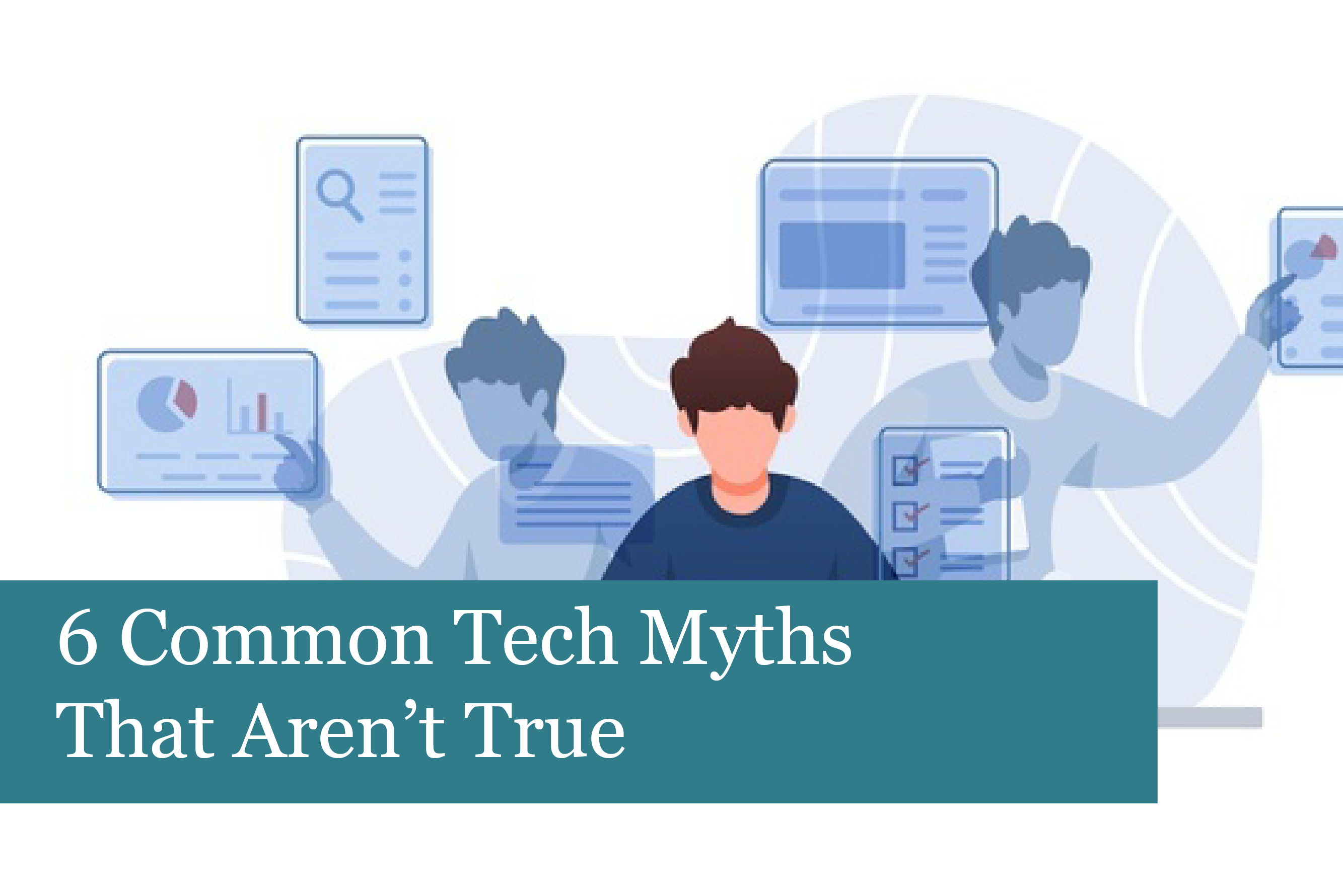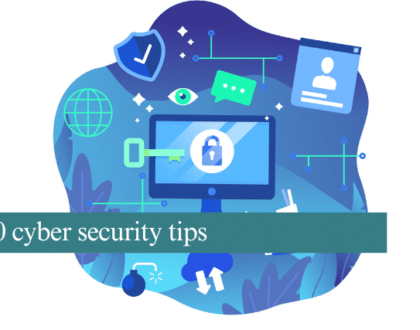
Facts run the world of Information Technology; while this may be true, there are some fairly common half-truths, rumours and more that are often shared. We’ve put together a list of some of the most 7 common IT myths to help you sort the truth from the false or half-truths.
1). Macs Never Catch Viruses
This rumour’s been around for quite some time. While this is somewhat true, it’s not the complete story. Macs are fairly free of viruses; however, macOS does have some vulnerabilities that make it a target of cyber threats. Cybercriminals have become adept at attacking Macs with ransomware, phishing attacks, and other types of malware.
It’s also important to keep in mind that Macs generally have a lower share of the marketing when it comes to computers. The reason? Because Windows PCs are more numerous than Macs. It’s that simple. For this reason, hackers haven chosen to target Windows. They’ve found it more profitable than attacking Macs.
No matter what system you prefer, there are cyber threats just waiting for a chance to gain access and wreak havoc.
2). Blowing on Video Game Cartridges Makes Them Work Better
This is another myth that’s been around for quite a while, and you’ve probably heard it. This rumour actually started way back in the mid-80s with the advent of Nintendo gaming systems. The systems used huge 5-inch cartridges, which didn’t always want to boot up.
A theory developed that if you removed the cartridge and blew on it, this would remove any dust or other debris that could be interfering with the connectors. This was a possible problem; however, in reality the cartridges didn’t work for other reasons.
The issue was due to connectors that didn’t properly align when inserted into the gaming system. So, all that needed to be done was to remove the cartridge and reinsert it. The fix of blowing on the cartridge probably did more damage instead of fixing the problem. This is because the moisture contained in our breath could have damaged the sensitive components inside the cartridge. Who knew?
3). A Smartphone’s Battery Can be Ruined by Overnight Charging
Long ago, it was possible to damage a smartphone’s battery through overcharging. Improvements in today’s batteries make it possible to keep the device plugged in, which slightly increases stress on the battery. This causes the battery to activate something called a “trickle charge” mode, which keeps the battery charged up, without causing damage.
There is one problem with trickle charge, though. It can cause the device to heat up, which can be a problem as it does cause wear and tear on the device. Another issue is that if a phone is protected by a case, this can lead to a phone overheating.
For this reason, many experts recommend removing the case from your phone when charging it overnight. In addition, they also say it’s much better to lay the phone on a flat, cool surface when recharging the battery. If you keep the phone in bed with you, or lay it on something that is soft, the phone can overheat. Laying it on a hard, cool surface can keep this from happening.
4). Google Gives Preference to Companies that Pay
Many people use Google’s search engine each day, which has led to a myth about top search results. The myth says that Google gives preferred treatment to companies that pay. In other words, those top search results on page one have been paid for, and this is the reason they come out on top. The reality is much different.
Many companies do pay Google for advertisements. You will see some of these near the top of the search results—these are marked with “Ad” in front. These are ads place by Google that only appear in that space to attract traffic. While these ads are tied to your search query, they are only ads and not part of the search results.
The results below these are turn up because they are a best match to the keywords entered into the search bar. That’s it. These results are called “organic” results, which means they appeared first due to the site owners’ SEO (Search Engine Optimization) efforts.
5). There’s No Need for Security if There’s Nothing Important on a Device
This is a huge myth of elephantine proportions. While it may be true that you don’t keep important data on the device, data is certainly stored on your device simply from being used. And some of this data is extremely valuable to cybercriminals.
Do you use your device to access email, social media, shop online, or even pay bills? If so, then you have valuable data on your device which is unsecured. This is a huge risk because it’s unprotected, and is easily accessible by hackers.
What would happen if a cybercrook gained access to your bank details? This is possible if you pay bills online. In that case, the criminal would then be able to use this information to make purchases, withdraw money from your account and more. These are the reasons your devices need security including your computer, laptop, tablet, and smartphone.
6). All You Need is a Firewall for Security
This is another one that’s been around for a while. A firewall is an essential part of keeping intruders out, but it needs to be combined with other security solutions in order to be effective. If you solely rely on a firewall, you’ll see soon enough that your network is hacked.
A firewall needs to be used with other types of security measures including antivirus & malware solutions, along with spam and filtering tech to make sure a system is adequately protected.
We hope you’ve enjoyed reading through some of these popular tech myths!
Recommended Posts

IT Simplified: What Is A Firewall?
21st March 2025

10 cyber security tips
14th March 2025

